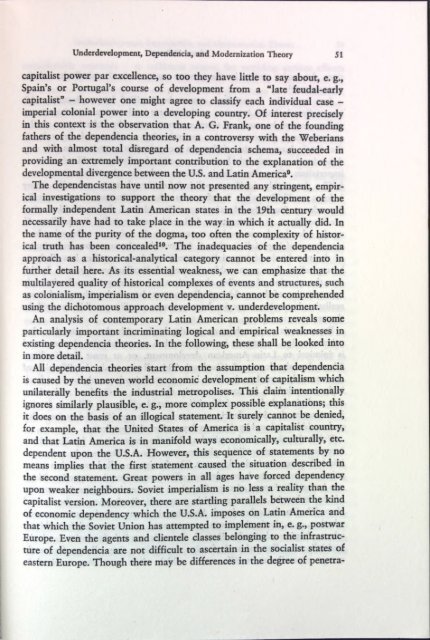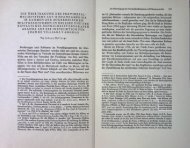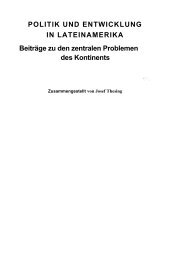9_Law and State_Volume 17
You also want an ePaper? Increase the reach of your titles
YUMPU automatically turns print PDFs into web optimized ePapers that Google loves.
Underdevelopment, Dcpcndcncia, <strong>and</strong> Modernization Theory 51<br />
capitalist power par excellence, so too they have little to say about, e. g.,<br />
Spain’s or Portugal’s course of development from a “late feudal-early<br />
capitalist” - however one might agree to classify each individual case -<br />
imperial colonial power into a developing country. Of interest precisely<br />
in this context is the observation that A. G. Frank, one of the founding<br />
fathers of the dependencia theories, in a controversy with the Weberians<br />
<strong>and</strong> with almost total disregard of dependencia schema, succeeded in<br />
providing an extremely important contribution to the explanation of the<br />
developmental divergence between the U.S. <strong>and</strong> Latin America8.<br />
The dependencistas have until now not presented any stringent, empirical<br />
investigations to support the theory that the development of the<br />
formally independent Latin American states in the 19th century would<br />
necessarily have had to take place in the way in which it actually did. In<br />
the name of the purity of the dogma, too often the complexity of historical<br />
truth has been concealed10. The inadequacies of the dependencia<br />
approach as a historical-analytical category cannot be entered into in<br />
further detail here. As its essential weakness, we can emphasize that the<br />
multilayered quality of historical complexes of events <strong>and</strong> structures, such<br />
as colonialism, imperialism or even dependencia, cannot be comprehended<br />
using the dichotomous approach development v. underdevelopment.<br />
An analysis of contemporary Latin American problems reveals some<br />
particularly important incriminating logical <strong>and</strong> empirical weaknesses in<br />
existing dependencia theories. In the following, these shall be looked into<br />
in more detail.<br />
All dependencia theories start from the assumption that dependencia<br />
is caused by the uneven world economic development of capitalism which<br />
unilaterally benefits the industrial metropolises. This claim intentionally<br />
ignores similarly plausible, e. g., more complex possible explanations; this<br />
it does on the basis of an illogical statement. It surely cannot be denied,<br />
for example, that the United <strong>State</strong>s of America is a capitalist country,<br />
<strong>and</strong> that Latin America is in manifold ways economically, culturally, etc.<br />
dependent upon the U.S.A. However, this sequence of statements by no<br />
means implies that the first statement caused the situation described in<br />
the second statement. Great powers in all ages have forced dependency<br />
upon weaker neighbours. Soviet imperialism is no less a reality than the<br />
capitalist version. Moreover, there are startling parallels between the kind<br />
of economic dependency which the U.S.A. imposes on Latin America <strong>and</strong><br />
that which the Soviet Union has attempted to implement in, e. g., postwar<br />
Europe. Even the agents <strong>and</strong> clientele classes belonging to the infrastructure<br />
of dependencia are not difficult to ascertain in the socialist states of<br />
eastern Europe. Though there may be differences in the degree of penetra
















